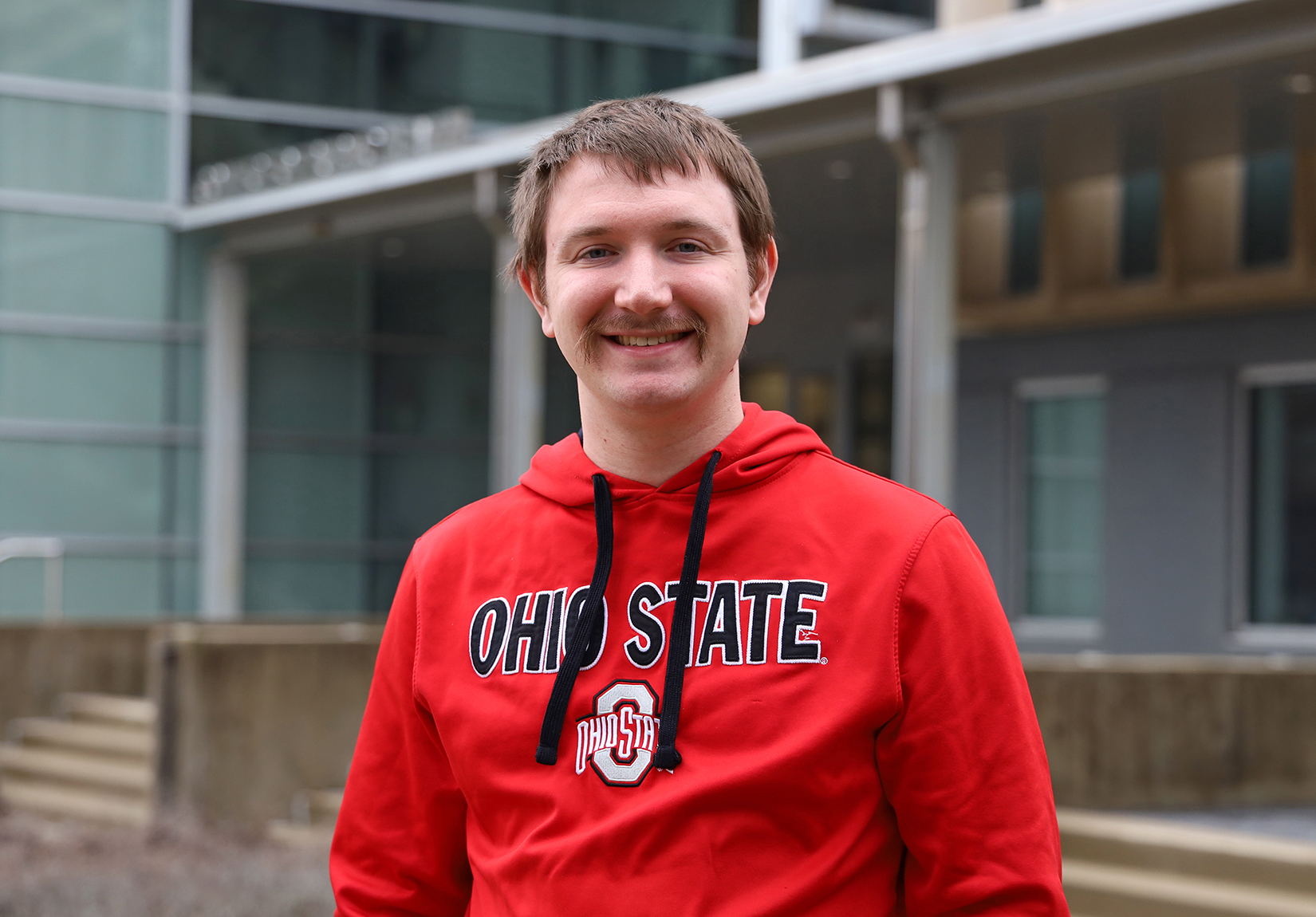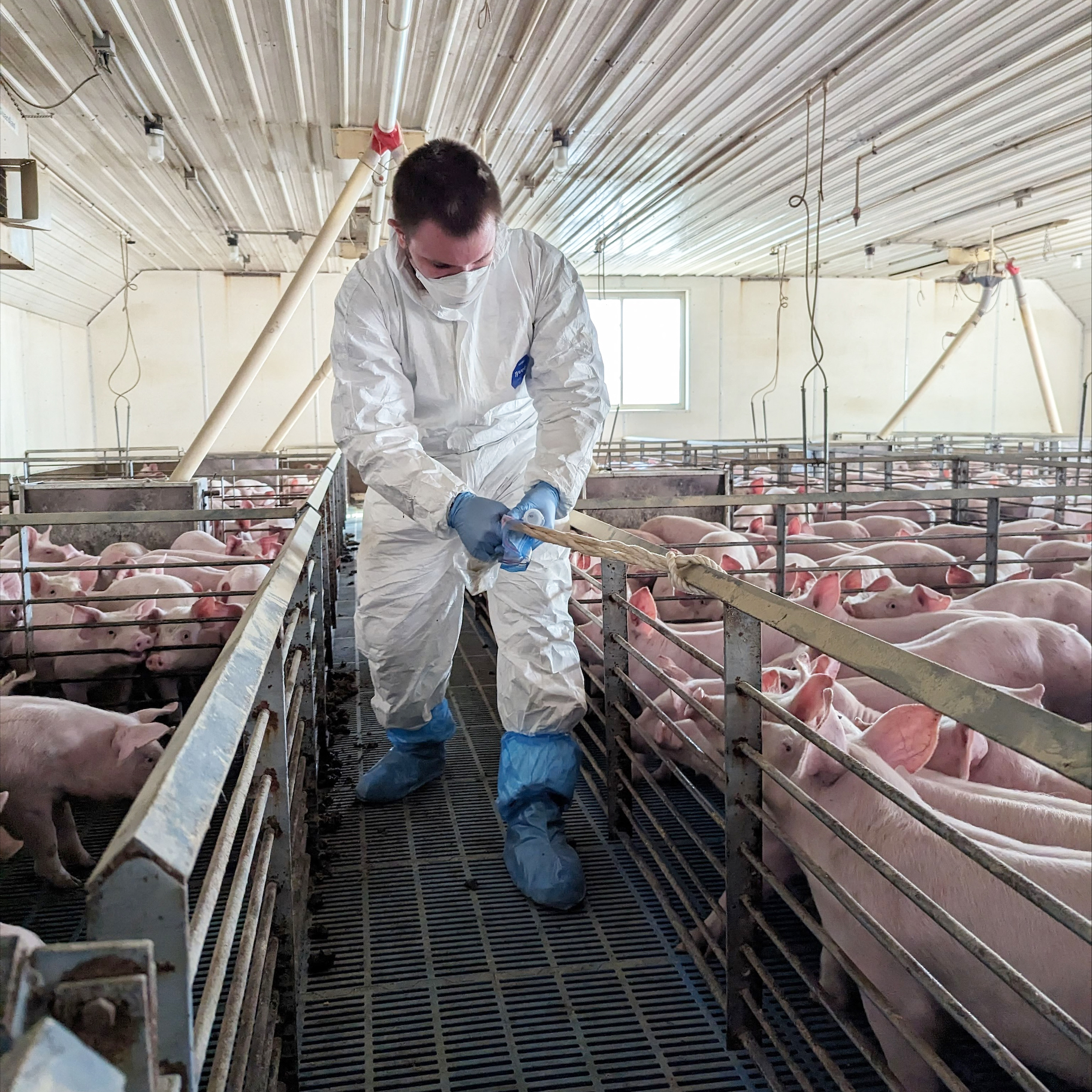Public Health Buckeyes: Everett Dalesio
Love for animals drives MPH student's passion for emerging infectious diseases
By Kristen Mitchell

Meet Everett Dalesio, a second-year MPH student specializing in veterinary public health, a collaboration between the College of Public Health and the College of Veterinary Medicine.
Question and Answer
What inspired you to pursue a public health education?
My mom is a nurse practitioner, and my dad was an EMT, so I have always been interested in health. As a kid I wanted to be a veterinarian, so I’ve also always loved animals. Those two have always been on a collision course in my life, but they really came together after reading “Spillover” by David Quammen, a book about zoonotic diseases. I was so enthralled by every chapter, and it really pushed me toward emerging infectious diseases.
What public health topics are you most passionate about?
I’m passionate about emerging infectious diseases — both zoonotic (an infection or disease transmissible from animals to humans) and epizootic (an outbreak affecting many animals of one kind at the same time). I’m also interested in outbreak response and investigation. As a side hobby, I enjoy reading about public health history and anthropology.

You’ve been involved in research as a graduate student. What has that experience been like?
I’ve had an amazing time. My integrative learning experience has been investigating a portable PCR (polymerase chain reaction) device in detecting swine influenza virus in the field. These devices are state-of-the-art technology, so there haven’t been a lot of field trials with them. Being able to investigate something new that would be a huge advantage for outbreak responders is a privilege. The standard method for diagnostics is to take samples all the way to the state laboratory, which can be time consuming. Being able to perform tests on site would speed up the process dramatically.
Outside of the project itself, it has been fantastic to work with my advisor Andréia Arruda and her postdoctoral scholar Ting-Yu Cheng. They have both been so supportive and helpful.
What have you enjoyed most about the MPH-VPH program?
I love the close-knit community that exists within the entire veterinary preventive medicine department. The MPH-VPH program is relatively small compared to other MPH specializations, and that allows students, staff and faculty to get to know each other better. I especially appreciate the other members of my cohort. We all support each other.
What are your goals for the future?
My immediate plans are to join the Peace Corps. When my mom graduated as a nurse, she spent one-and-a-half years in Yemen in the Peace Corps. She always says how amazing an experience it was for her, and I have always wanted to do it as well. Peace Corps deployments are two years, so it’s tough to say what my plans are for after that. My dream situation would be working with the Centers for Disease Control and Prevention in their epidemic intelligence service program.
What advice would you give future veterinary public health students?
Take pride in your passion. Compared to the rest of the public health field, we make up a relatively small proportion, but our work is just as important as anyone else. Between emerging, expanding and neglected tropical diseases, infectious diseases take a huge toll on global health. Preventing disease will always be honorable work— no matter the species.
About The Ohio State University College of Public Health
The Ohio State University College of Public Health is a leader in educating students, creating new knowledge through research, and improving the livelihoods and well-being of people in Ohio and beyond. The College's divisions include biostatistics, environmental health sciences, epidemiology, health behavior and health promotion, and health services management and policy. It is ranked 22nd among all colleges and programs of public health in the nation, and first in Ohio, by U.S. News and World Report. Its specialty programs are also considered among the best in the country. The MHA program is ranked 5th and the health policy and management specialty is ranked 21st.